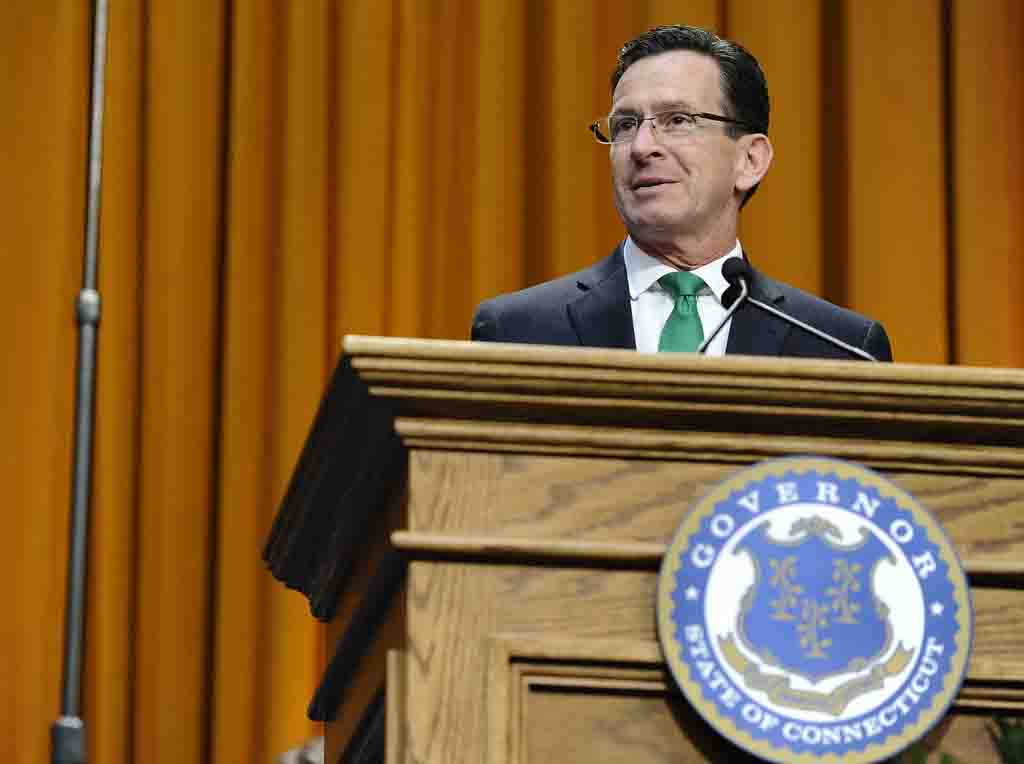
Courtesy of the Office of Governor Dannel Malloy
Gov. Dannel Malloy banned discrimination based on gender identity and expression in public school bathrooms and locker rooms on Thursday, the first of two memos he wrote regarding federal authority in Connecticut public schools last week.
Attempting to reinforce former President Barack Obama-era guidelines that advised public schools to allow transgender students their choice of bathroom, Malloy’s executive order tasks the State Department of Education with detailing policies that will allow students to access facilities that align with their gender identity or expression. President Donald Trump revoked the Obama guidelines the day before Malloy issued his order. His first letter provided guidance to public schools on how to respond to potential attempts by the federal authorities to question students’ immigration statuses.
“Despite the actions taken by the federal government yesterday, the state of Connecticut remains committed to ensuring that every student has access to a high-quality education in a safe, supportive and welcoming school environment,” Malloy said in a Thursday press release. “Connecticut will remain a state of inclusiveness because we strongly believe that diversity makes us stronger.”
In July 2011, Malloy signed a broad bill that outlawed gender identity-based discrimination in places of public accommodation. The governor’s office said in the release that the order clarifies that bill, specifically targeting locker rooms and bathrooms in public schools.
Laurence Bashford ’18, coordinator of Yale’s LGBTQ Cooperative, said they are pleased Malloy stepped in to preserve the order for Connecticut residents.
“We are obviously glad that our local Connecticut representatives are taking the necessary steps to protect their LGBTQ+ constituents, as is their job and moral responsibility,” Bashford said. “We hope to see more state-level protections being implemented in the light of the abuse of executive powers in the federal government to target vulnerable queer communities across the U.S.”
The order approaches anti-discrimination from three angles. First, it clarifies that the definition of public accommodations used in the 2011 bill includes school bathroom and locker facilities. It then asks the SDE and the state Commission on Human Rights to guide school districts in implementing policies consistent with the directive. Lastly, it instructs the Board of Regents of the University of Connecticut to implement policies in accordance to the law.
SDE Commissioner Dianna Wentzell and Malloy also sent a joint memo to the superintendents of the state’s public schools on Friday denouncing Trump’s decision to rescind Obama’s guidelines, which advised schools to consider transgender bathroom use under existing Title IX statutes.
“We are dismayed and deeply disappointed that the U.S. Department of Education and U.S. Department of Justice decided to rescind nationwide guidance on protecting the civil rights of our transgender youth,” the letter reads. “While this action may have left the federal executive branch interpretation unclear, it does not change the law or eliminate the obligation to follow Title IX and other federal anti-discrimination law.”
Wentzell and Malloy go on to say that the SDE will soon issue formal guidelines to schools on how to accommodate students under Title IX and Connecticut law.
The next day, on Feb. 22, Malloy sent superintendents guidance on how to respond to federal authorities’ attempts to question a child’s immigration status. It cites a 1982 Supreme Court ruling that affirmed a child’s right to public education in the U.S., “regardless of race, color, national origin, citizenship, immigration status or the status of their parents/guardians.”
“We encourage you to consider having a plan in place in the event that [Immigration and Customs Enforcement] agents come to one of your schools, requesting information about or access to a student,” the letter reads. “In developing a plan for your district, you should consult with the district’s attorney.”
The letter goes on to outline procedures for handling ICE agents, questions a superintendent should ask and ways that a superintendent can verify that a search warrant is legitimate. Malloy stressed that a school should not assume the agent has the authority to enter school buildings or obtain student information.
On that same day, the governor also sent guidance to the state’s police chiefs on how to manage issues of immigration law enforcement, reminding them that the federal government cannot mandate local law enforcement to impose statutes that have no rooting in local or state laws.
Malloy’s moves motivated White House Press Secretary Sean Spicer to call the Connecticut governor’s actions “troubling.”
“The idea that Gov. Malloy would not want a law followed as enacted by Congress or by the Connecticut legislature in any fashion seems to be concerning,” he told reporters in a Friday press briefing. “Laws are passed in this country, and we expect our law makers and law enforcement agencies to follow and adhere to the laws.”







